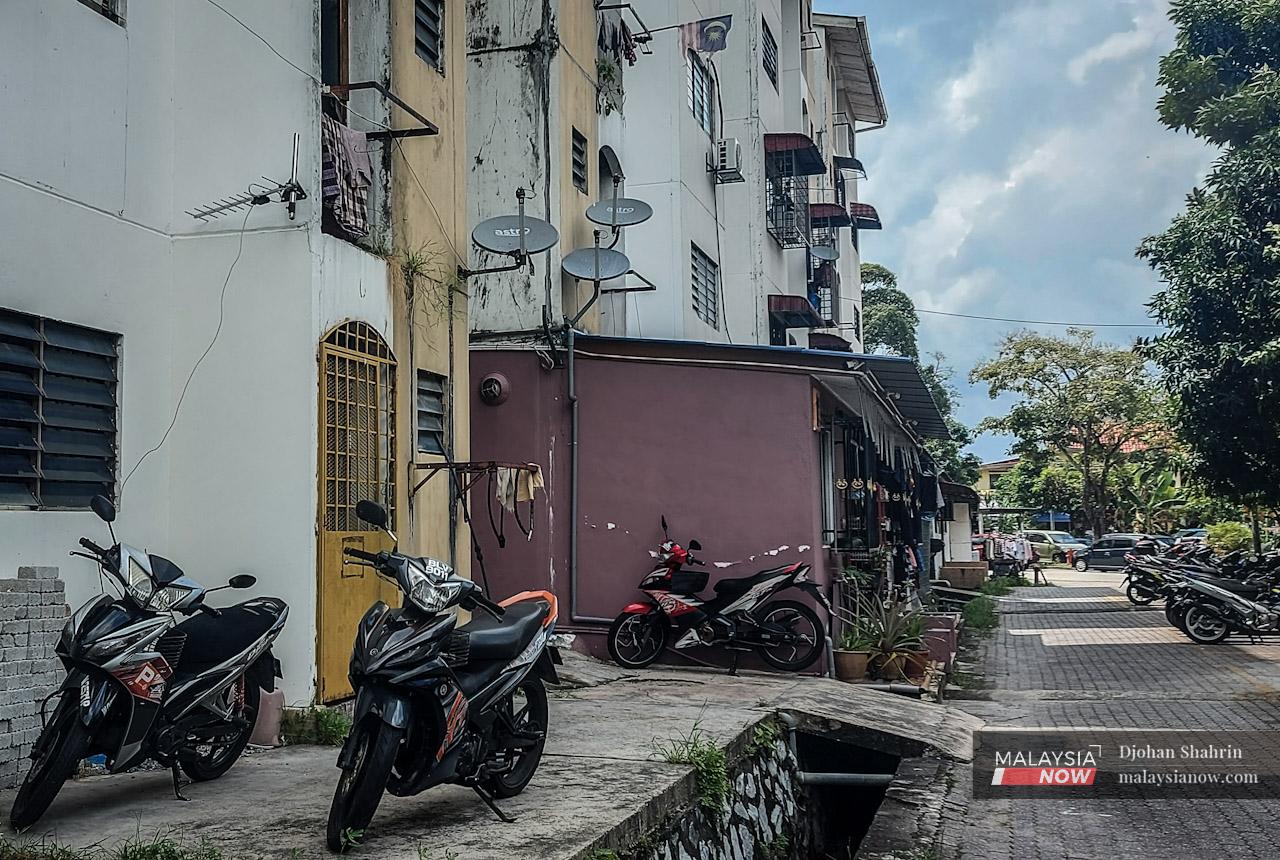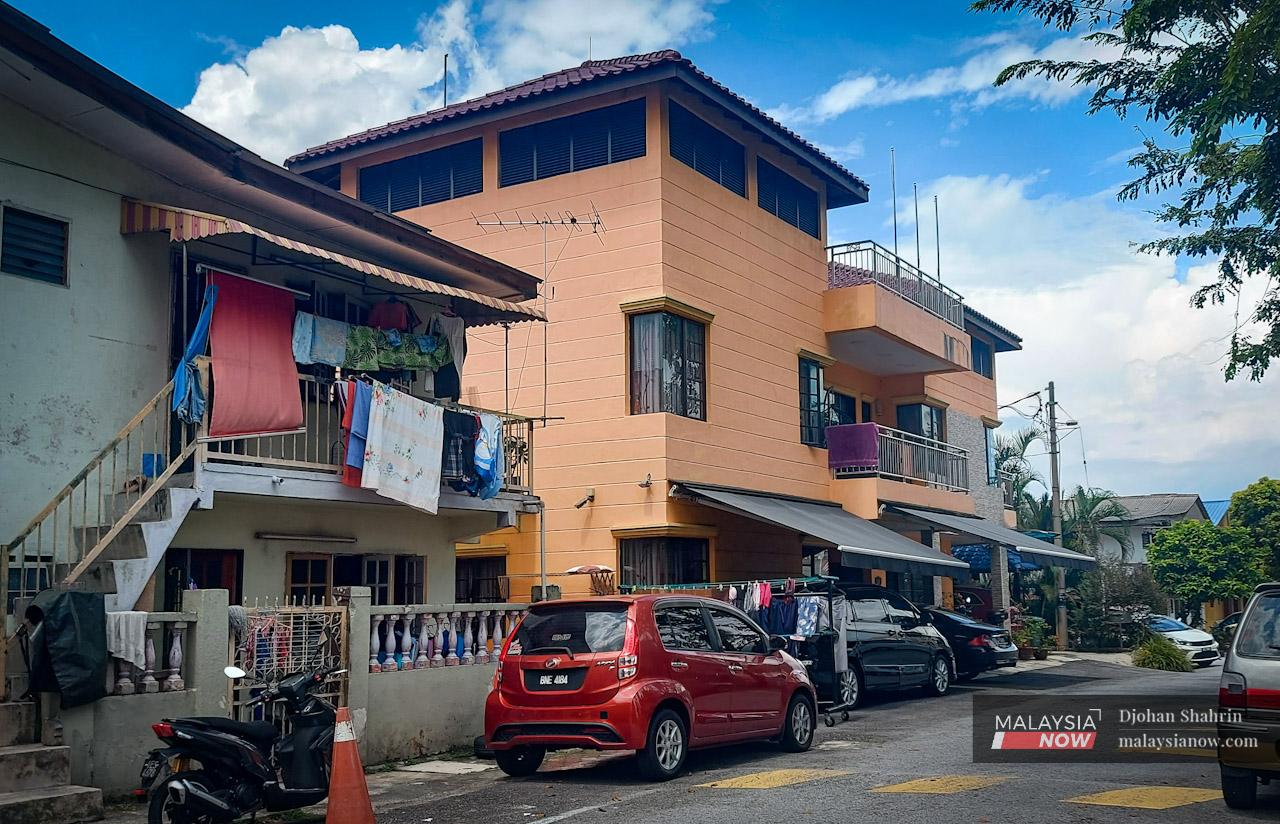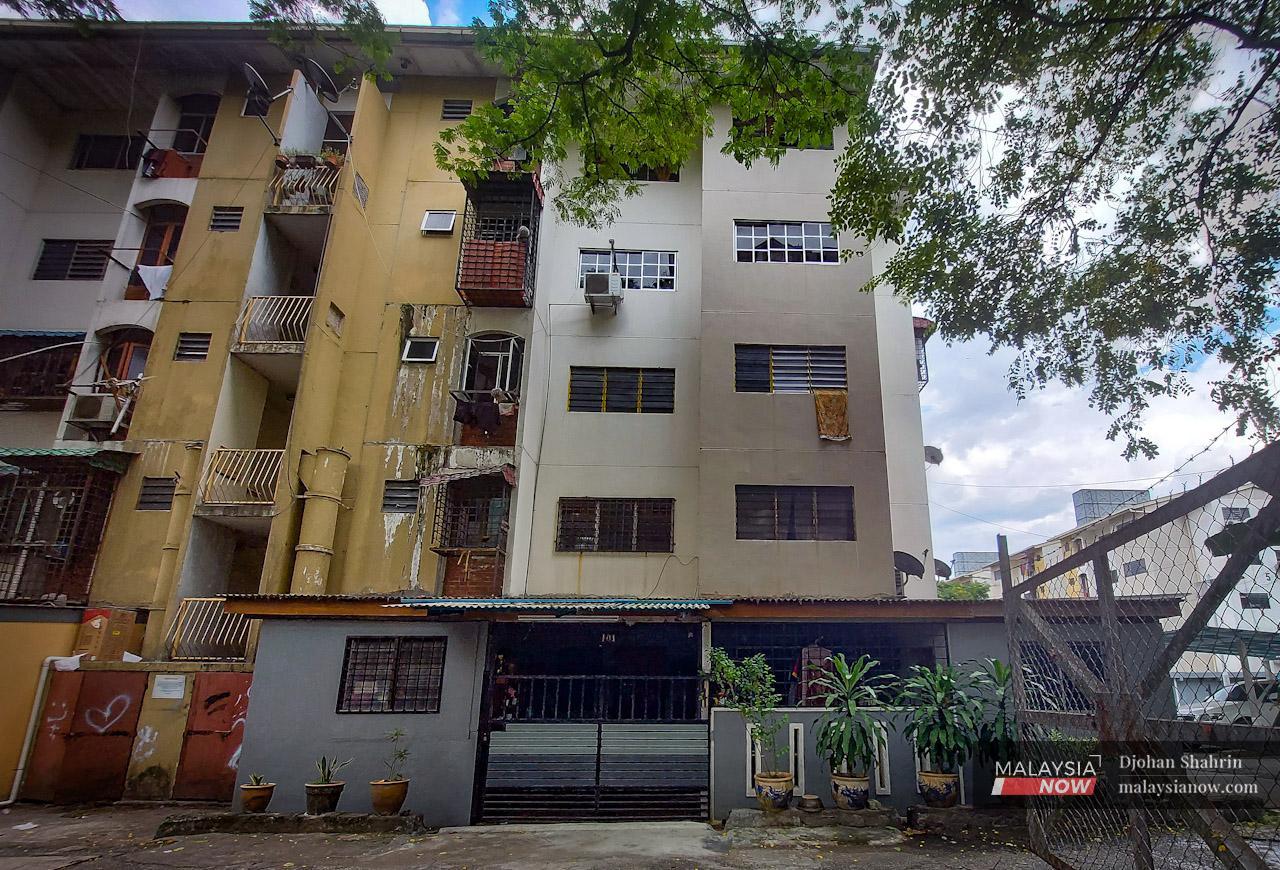When the urban poor renovate their homes on the sly
The illegal renovations are part of a larger pattern of indifference, driven by what appears to be a lack of options for the hard-core poor.
Just In
Pakcik Zamani (not his real name) and his wife moved into their home in a low-cost apartment block in Petaling Jaya, Selangor in late 1999.
There, they raised their four children, two of whom eventually moved out.
But the other two are still living with them, together with a son-in-law and two young grandchildren.
Seven people packed into the tiny unit left them scarcely any room to breathe, and eventually, Zamani decided to do something about it.
He renovated his small home on the sly, hoping to create more space for his family.

But his activities drew more attention that he would have liked, with videos and photos spread far and wide on social media.
For the most part, internet users denounced his illegal home improvement efforts as selfish and even immoral.
Speaking to MalaysiaNow, Zamani acknowledged the general unhappiness about his move but said he had been driven to it.
Since he and his wife moved in, he said, his family had been trapped in the tiny space, searching for a way to make their home more liveable.
Six years ago, he sent his youngest son to a tahfiz school in Terengganu – a decision he still regrets today.
But he said he had no choice. His son was 15 at the time, and his three daughters needed the privacy of their own room. With no other space available in the small flat, his son was forced to sleep in the living room.
This became a problem, especially on weekends and holidays when his son fell into the habit of staying out, sometimes until late morning.
“He didn’t want to stay at home,” Zamani said. “We were forced to send him to a tahfiz school, otherwise he would never stay put or sleep in a bed.”
Zamani’s decision to illegally renovate his home sparked a flood of angry comments from social media users, some of whom asked why he did not buy a terraced house if he had the money to overhaul his unit.
But with just RM30,000 in the bank, Zamani said, there was no way that he could afford a house.
“Adding on to our home here and there is all we can do,” he said.
And with even people who lived in mid-range terraced houses revamping their homes to turn them into three-storey bungalows, Zamani said it was no wonder that residents in his low-cost housing area had been emboldened to do their own renovations.

“No action is taken against them,” he added. “Why is it that people are only angry when we do it to our flats?”
B40 mentality?
Illegal renovations aside, those in the urban low-income bracket are often associated with other social ills such as tussles over parking space, dilapidated facilities, and a general disregard for hygiene.
A visit to several low-cost apartment blocks in the city appeared to bear out these beliefs.
The buildings and units were thick with grime, public facilities like playgrounds were filthy and in disrepair, and garbage lay everywhere.
A resident at the Lembah Subang People’s Housing Project (PPR) who identified himself as Khai said the people who lived there were not well looked after.

Khai, a 23-year-old anthropology and socialogy graduate from Universiti Kebangsaan Malaysia, has lived at the low-cost flats with his parents since he was nine months old.
He said very few appeared to care about the troubles of “PPR kids”, and that no attention was paid to the occupants’ hardships.
“The lifts are broken, and the playgrounds are cramped and do not follow the area specifications that they should,” he said.
“But who is brave enough to take responsibility? The water supply is never dependable, and old people have to carry buckets up to the 11th floor.
“They are given the keys to their units, and then left to fend for themselves. So they throw the rules out of the window because they think no one will care.”
Khai said this was very different from the low-cost government housing just over the border in Singapore.
“There, they have balconies and a 24-hour security system, and everything is well maintained,” he said.
“Here, the minute anything goes missing, everyone blames the PPR kids, accusing them of sniffing glue and stealing.”
Subscribe to our newsletter
To be updated with all the latest news and analyses daily.
